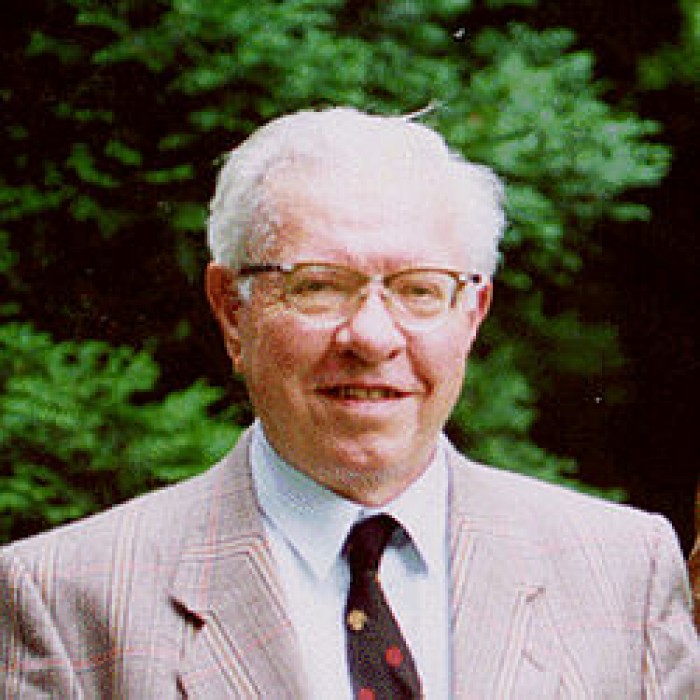
Sir Fred Hoyle (24 June 1915 – 20 August 2001) was an English astronomer noted primarily for the theory of stellar nucleosynthesis.
He also for his often controversial stances on other scientific matters—in particular his rejection of the "Big Bang" theory, a term coined by him on BBC radio, and his promotion of panspermia as the origin of life on Earth.
While Hoyle is well-regarded for his works on nucleosynthesis and science popularisation.
His career is also noted for the controversial positions he held on a wide range of scientific issues, often in direct opposition to the prevailing theories supported by the majority of the scientific community.
He spent most of his working life at the Institute of Astronomy at Cambridge and served as its director for six years.
He was a writer of science fiction, and co-authored twelve books with his son, Geoffrey Hoyle.
Hoyle was born near Bingley in Gilstead, West Riding of Yorkshire, England.
Hoyle was educated at Bingley Grammar School and read mathematics at Emmanuel College, Cambridge.
In late 1940, Hoyle left Cambridge to go to Portsmouth to work for the Admiralty on radar research, for example devising a method to get the altitude of the incoming aeroplanes.
On one trip he learned about supernovae at Caltech and Mt. Palomar and, in Canada, the nuclear physics of plutonium implosion and explosion, noticed some similarity between the two and started thinking about supernova nucleosynthesis.
He also formed a group at Cambridge exploring Stellar nucleosynthesis in ordinary stars and was bothered by the paucity of stellar carbon production in existing models.
He noticed that one of the existing processes would be made a billion times more productive if the carbon-12 nucleus had a resonance at 7.7 MeV, but the nuclear physicists did not list such a one.
On another trip he visited the world class nuclear physics group at Caltech, spending a few months of sabbatical there and persuaded them against their considerable scepticism to look for and find the Hoyle state in carbon-12.
After the war, in 1945, Hoyle returned to Cambridge University, starting as a lecturer at St John's College, Cambridge.
After his leaving Cambridge, Hoyle wrote many popular science and science fiction books, as well as presenting lectures around the world.
Hoyle was still a member of the joint policy committee (since 1967), during the planning stage for the 150-inch Anglo-Australian Telescope at Siding Spring Observatory in New South Wales.
He became chairman of the Anglo-Australian Telescope board in 1973, and presided at its inauguration in 1974 by Charles, Prince of Wales.
Fred Hoyle authored the first two research papers ever published on the synthesis of the chemical elements heavier than helium by nuclear reactions in stars.
Together with Narlikar, Hoyle developed a particle theory in the 1960s, the Hoyle–Narlikar theory of gravity.
In his later years, Hoyle became a staunch critic of theories of abiogenesis to explain the origin of life on Earth.
Hoyle and Wickramasinghe advanced several instances where they say outbreaks of illnesses on Earth are of extraterrestrial origins, including the 1918 flu pandemic, and certain outbreaks of polio and mad cow disease.
Though Hoyle declared himself an atheist, this apparent suggestion of a guiding hand led him to the conclusion that "a superintellect has monkeyed with physics, as well as with chemistry and biology, and ... there are no blind forces worth speaking about in nature."
While Hoyle was well-regarded for his works on nucleosynthesis and science popularization, his career was also noted for the controversial positions he held on a wide range of scientific issues.
Hoyle was also at the centre of two unrelated controversies involving the politics for selecting the winner of the Nobel Prize for Physics.
Hoyle appeared in a series of radio talks on astronomy for the BBC in the 1950s. Hoyle also appeared in the 1973 short film "Take the World From Another Point of View".
Source: Link

1564 - 1616

1803 – 1882

1854 – 1900

1942 – 2016

1928 – 2014

1835 – 1910

1869 – 1948

1884 – 1962
1898 – 1963

1929 – 1993

1879 – 1955

1809 – 1865

1807 – 1870

1800 – 1859

1795 – 1821

1755 – 1793

1984 -

1989 – 2011

1943 – 2001

1815 – 1902

1929 – 1994

1767 – 1848
